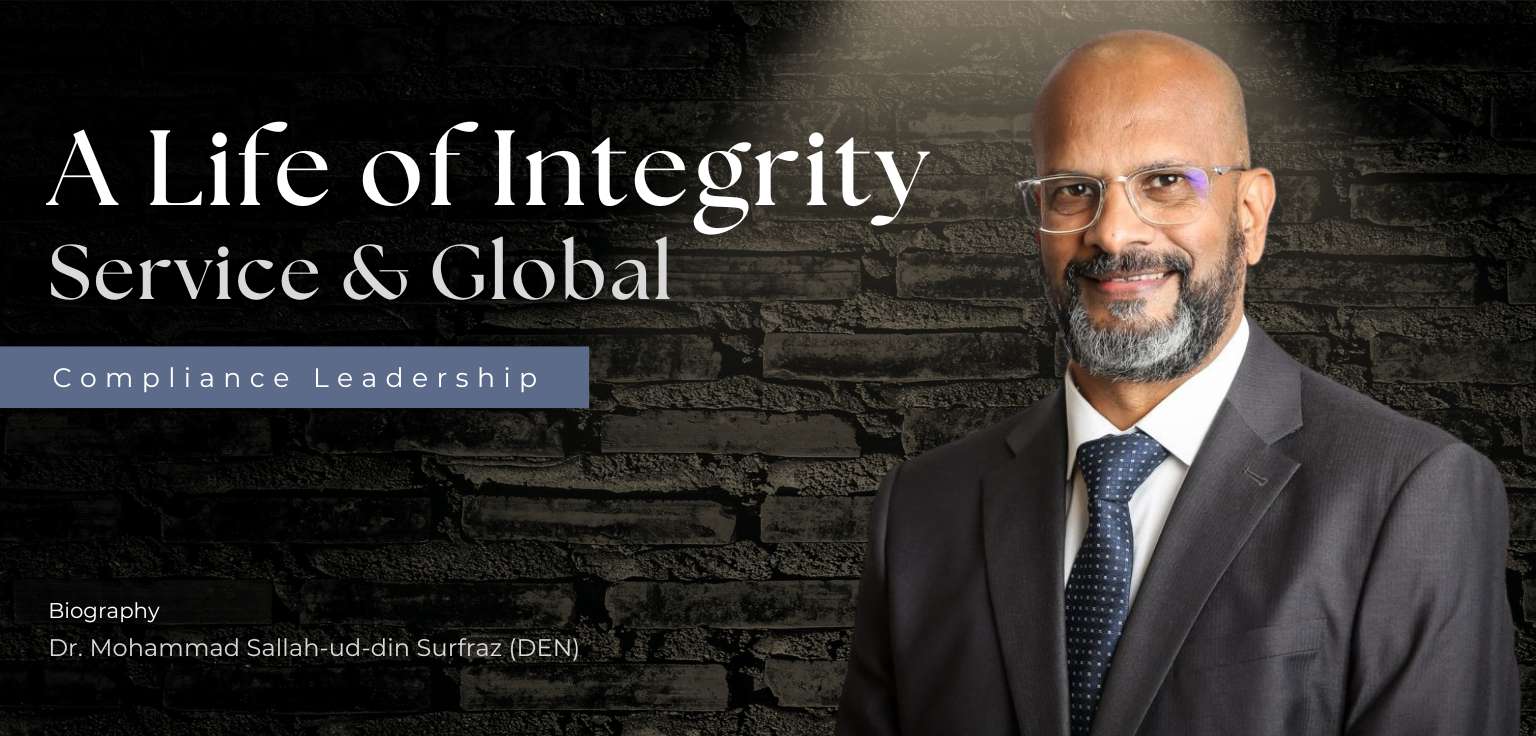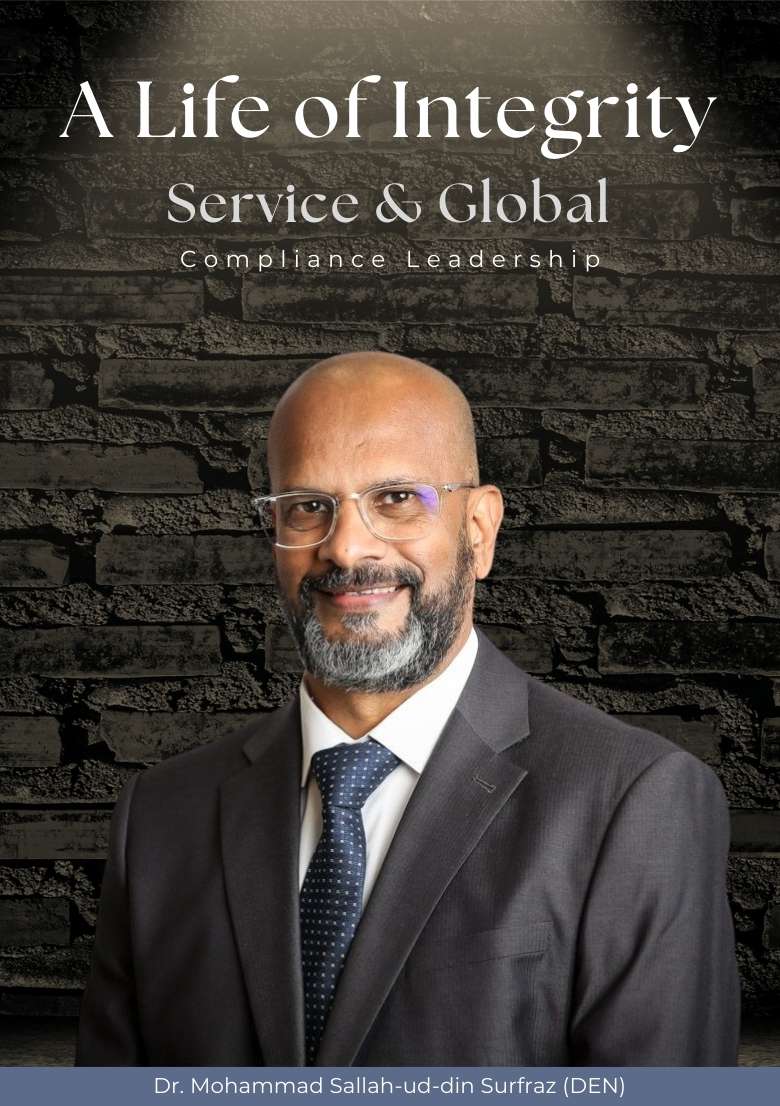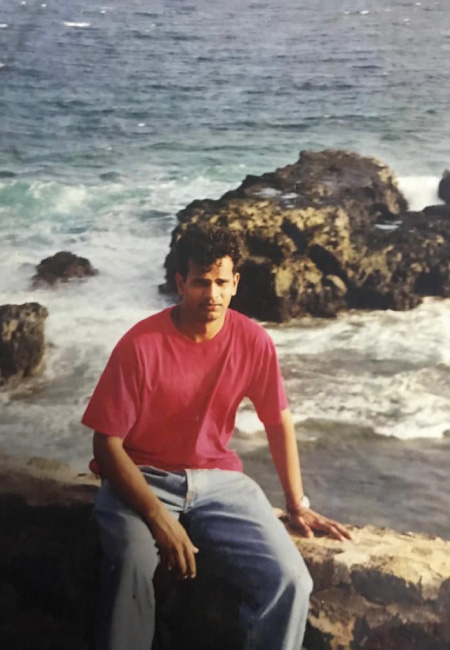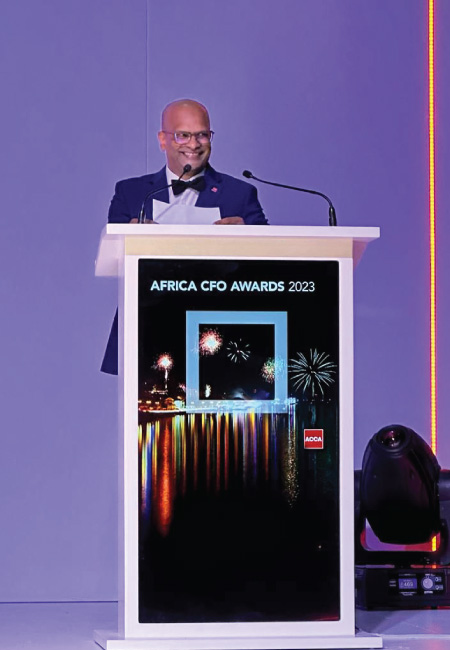

"With gratitude, love, and the unwavering belief that purpose-when rooted in values can carry one across continents and eras."
Dedication
If you’re holding this biography, you’re not just reading my story—you’re journeying through the decades that shaped me, the people who molded me, and the principles that guided me. This is not a celebration of my achievements, but an offering of the lessons I’ve learned. I dedicate this work not for legacy, but for remembrance. I dedicate it to those who walked beside me whether through footsteps, silence, or faith.
To my wife, Moniza, my companion in life’s journey. Since 1995, you’ve been my co-anchor in a world that often demanded too much. Your love, grace, and resilience nourished me when the professional storms grew heavy. You believed in me before the titles came, and you continue to hold my humanity with such tenderness that I’m constantly reminded: I’m never just a leader, I’m a husband first.
To my son, Azdine, and my daughter, Maysara you are my brightest chapters. You ground me when ambitions soar and inspire me when the world feels complex. To my daughter especially, my “added luck,” who gave new depth to my journey in 2007- you’ve changed me. Not just in role, but in heart. Everything I strive for now has your future in mind.
To Afra, my daughter-in-law from Sri Lanka, welcome to the journey. You bring new joy, new culture, and new light into our shared story. Your presence affirms that love and connection truly transcend borders.
This dedication belongs equally to the colleagues, mentors, and teams I’ve served and led. From the Police Force to the Financial Intelligence Unit, from Citco to Butterfield, and now across the vast IMEA region with TMF Group, you’ve trusted me, challenged me, and allowed me to grow. Thank you for the debates, the ideas, the support. Thank you for allowing me to coach and letting me be coached in return.
To Mauritius, my birthplace and eternal guide, thank you. The scent of village mornings, the rhythm of goat herding before school, and the culture of hard work have never left me. They live in my tone, my decisions, my leadership. My childhood village, Chemin Grenier, runs through my veins.
Phase 1 : Roots in Mauritius: Foundations of Discipline and Resilience
Greatness isn’t born from comfort; it emerges from quiet sacrifices, unwavering discipline, and the courage to pursue purpose beyond circumstance.”

In the quiet heart of Southern Mauritius, nestled in Chemin Grenier, a young boy named Sallah-ud-din Surfraz grew up surrounded by the rhythm of modest living and the echo of purpose. One of eight siblings, seven spirited brothers and one cherished sister-he shared more than just a roof with his family; he inherited a legacy of grit, humility, and a profound belief in the transformative power of education.
Born into a household that relied solely on the labor of his father, a bus driver before becoming a bus terminal master who navigated routes with unwavering commitment, the young Sallah-ud-din observed the kind of sacrifice that speaks louder than sermons. His father’s diligence, marked by long days and few luxuries, became the blueprint for his understanding of honor and responsibility. His mother, a homemaker with the wisdom of a quiet philosopher, anchored the family in moral strength and emotional intelligence. Between them, they modeled a life steeped in integrity, service, and an unfailing reverence for knowledge
Despite the limited means, the Surfraz household was a vibrant ecosystem of love and discipline. The scarcity they knew never dampened the spirit of the family; instead, it forged bonds that would weather life’s fiercest trials. Within this close-knit home, young Sallah-ud-din learned the significance of shared meals, mutual respect, and the unspoken joy that comes with sacrifice for the greater good.
From a very early age, his life was a balancing act, literally and figuratively. As the sun rose over the Mauritian hills, Dr. Surfraz wasn’t waking to leisure; he was attending to goats and cows, fulfilling his morning duties before heading off to the local government primary school. These responsibilities weren’t mere chores,
they were lessons wrapped in the scent of dew and the hum of rural life. Time management, accountability, and the intimate connection to one’s environment became second nature. He didn’t just grow up in Mauritius; Mauritius grew up within him.
At school, it was clear that Sallah-ud-din wasn’t an average student. He possessed a sharp intellect coupled with an inquisitive spirit. His natural curiosity and perseverance led him to excel in Standard 6, securing admission to the prestigious Saint Joseph College. The transition was not just academic, it was sociological. Moving from a humble village into an elite academic institution introduced him to a spectrum of social classes, broadening his horizons and quietly fueling an ambition that had always simmered beneath the surface.
Phase 2 : Serving the Nation: The Formative Police Years (1990-2003)
The uniform doesn’t merely signify authority; it symbolizes sacrifice, resilience, and the unwavering resolve to uphold justice against all odds.”

In 1990, when most of his peers were preparing for exams or pondering youthful ambitions, Dr. Sallah-ud-din Surfraz donned the badge of service and stepped into a world where duty, danger, and discipline converged. For the next thirteen and a half years, he committed himself to the Mauritius Police Force, an institution that wouldn’t merely offer a career, but a crucible through which his character, philosophy, and professional ethos would be forged.
Fresh from an emotional decision to trade academic progression for familial duty, Dr. Surfraz didn’t enter the force as a mere recruit. He arrived with fire in his belly and purpose in his stride. Carrying with him the grit of his village and the drive of someone who’d never had privilege handed to him, he quickly internalized the demands of a lifestyle most civilians only hear about: unpredictable hours, moral dilemmas, and the psychological toll of confronting society’s darkest corners.
His early years in uniform were defined by immersion. On the streets, in interview rooms, and during surveillance operations, he encountered humanity in its rawest forms. He witnessed not just crime, but pain; not just disorder, but desperation. Through daily exposure, he cultivated an investigative mindset, one rooted not in judgment but in analysis. His work started molding a deeper understanding of human nature and societal constructs. Over time, he recognized that the law, while absolute, required empathy to enforce justly.
This moral clarity found its most vivid expression in his years with the Anti-Drug and Smuggling Unit-a placement that tested both his resolve and his philosophical leanings. The unit demanded more than courage; it required strategic thinking, split-second decision-making, and an almost intuitive grasp of the criminal ecosystem. Raids often began before sunrise, disbanding after long nights with adrenaline, exhaustion, and paperwork as companions. Yet amidst the chaos, he thrived.
Where others saw addicts and criminals, Dr. Surfraz saw profiles, individuals caught in a web of addiction, systemic neglect, and manipulation. While the law mandated enforcement, his conscience advocated compassion. His nuanced approach was bold: treat drug users as victims of illness, deserving of rehabilitation and dignity, while relentlessly pursuing traffickers, the architects of destruction, with unflinching precision. This blend of principle and pragmatism elevated his standing among peers and superiors. He was respected not just for being efficient, but for being thoughtful, a rare quality in high-stakes enforcement.
His time in the unit was not without triumphs. Intelligence-gathering became his specialty, and he built a network of informants whose tips led to the disruption of major drug trafficking operations. The methods weren’t just tactical, they were transformative. One particularly significant case involved a trafficker attempting to flee Mauritius using a forged identity card. The investigation, spearheaded by Dr. Surfraz, led to his capture and exposed critical vulnerabilities in the National Identity Card system. The fallout wasn’t just local. It catalyzed national reforms, with Mauritius transitioning from traditional identity cards to a new digital system fortified against forgery. This contribution cemented his reputation as more than just an enforcer, he was a catalyst for institutional evolution.
Phase 3 : Transition: From Streets to Finance - The FIU Catalyst (2004-2007)
“Transformation begins at the intersection of courage and vision—where the lessons of the street ignite innovation in the world of finance.”
In 2004, after over a decade serving in the trenches of frontline law enforcement, Dr. Sallah-ud-din Surfraz stood at a pivotal crossroads in his professional journey. Having matured through the rigors of street-level investigations and seasoned by encounters with the raw realities of crime, he made a profound shift, one that would shape the contours of his influence for decades to come. He transitioned from the visceral immediacy of raids and interviews to the cerebral corridors of financial intelligence, joining the newly formed Financial Intelligence Unit (FIU) of Mauritius.
For Dr. Surfraz, this wasn’t just a job change; it was a leap into a new frontier where the battlegrounds were balance sheets and the adversaries cloaked their transgressions in spreadsheets and shell companies. His background in criminology and investigative practice offered him the tools to detect patterns and build cases. But money laundering (ML) and terrorist financing (TF) investigations demanded a new kind of fluency, one rooted in accounting frameworks, cross-border financial instruments, and regulatory nuance. He realized that the methods he had relied on in street policing would need to be transformed, and augmented, by a mastery of financial systems.
This epiphany sparked a long-held aspiration into action: to become a Chartered Certified Accountant. It was a bold move, considering his full-time role at FIU. But his trademark blend of discipline and intellectual ambition pushed him forward. In 2004, he enrolled with the Association of Chartered Certified Accountants (ACCA), a decision that would prove catalytic both personally and professionally.
The ACCA journey was no small feat. With its rigorous exams and emphasis on financial reporting, audit, taxation, and ethics, the program tested even the most academically prepared candidates. For Dr. Surfraz, it was doubly challenging: his days were packed with sensitive investigations, suspect interviews, and case documentation; his nights became laboratories for learning, charting the principles of financial governance and forensic accounting. And yet, true to form, he didn’t just persevere, he excelled. By 2007, he had completed the ACCA qualification and attained membership after in 2009. He achieved the Fellowship (FCCA) status in 2014, an acknowledgment of professional experience and expertise that positioned him among the elite in global financial circles.
His work at the FIU reflected this dual strength. Now equipped with forensic acumen sharpened by the streets and refined by academic rigor, Dr. Surfraz dived into complex cases with unmatched depth. One of his early initiatives involved developing financial profiles of individuals and companies suspected of money laundering and terrorist financing activity, a task that required both analytical precision and investigative intuition. Drawing on resources from various government departments, including the Registrar General and the Registrar of Companies, he created intelligence dossiers that unraveled hidden assets, fraudulent identities, and questionable transactions.